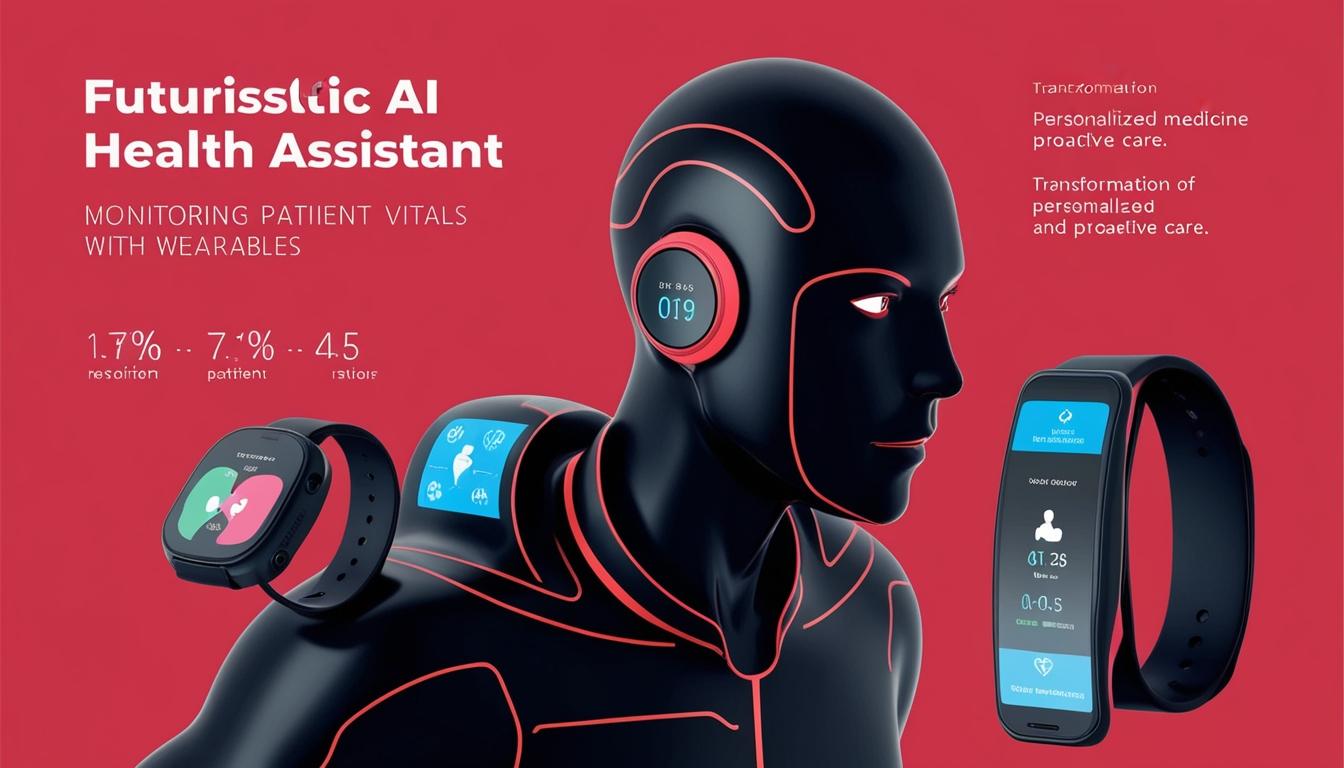The landscape of healthcare is undergoing a significant transformation, driven by advancements in artificial intelligence (AI), automation, and emerging technologies. As observed by Pune Prahar, the evolution from traditional watch functionality to comprehensive health monitoring illustrates the profound impact of technology on everyday life. By 2025, several key trends are anticipated to shape the future of patient care, redefining how healthcare systems operate and interact with patients.
One of the most significant changes is the increasing prominence of personalized medicine. This evolution is characterised by treatments tailored to individual genetic profiles and medical histories, with the primary aim of maximising treatment efficacy while minimising adverse effects. AI-powered health assistants will play a crucial role in this paradigm, providing real-time, tailored advice and managing patient inquiries through AI chatbots. These innovations will enable healthcare providers to concentrate on more complex cases, thereby enhancing the overall efficiency of care delivery.
The continual monitoring of vital signs through wearable devices represents another stride toward proactive health management. These technologies, paired with AI-driven imaging, can facilitate early disease detection and ensure more accurate diagnoses. Furthermore, robotic systems in surgical environments are set to perform increasingly intricate procedures with enhanced precision and minimal invasiveness. The expected outcome includes shorter recovery times, fewer complications, and reduced costs associated with patient readmissions. Additionally, the automation of drug discovery processes is projected to significantly expedite research timelines and diminish costs by as much as 25-50%.
Amid these advancements, innovative training methods for healthcare professionals will become commonplace, incorporating virtual reality (VR) and augmented reality (AR) experiences. The utilisation of drone technology for delivering medical supplies to remote locations also highlights the innovative trends shaping healthcare logistics. However, these enhancements necessitate a steadfast commitment to maintaining ethics, empathy, and safety as core priorities in patient care.
As healthcare becomes increasingly digitised, cybersecurity emerges as a critical concern to safeguard sensitive patient data. Enhanced measures, such as "zero-trust" security protocols, will be crucial in addressing emerging vulnerabilities linked to interconnected Internet of Things (IoT) devices. Continuous identity verification, stringent access controls, and biometric authentication will collectively fortify the protection of sensitive medical information. The proactive sharing of real-time threat intelligence and the development of AI-enabled training programmes for healthcare teams will cultivate a culture of security awareness amongst healthcare professionals.
A shift towards preventive healthcare is also anticipated, marked by AI-driven risk assessments and wellness initiatives. These preventive measures aim to identify risks early, thereby helping extend patients’ lifespans. Enhancing the patient experience will involve empowering individuals through active participation in treatment decisions and employing wearable technologies alongside virtual monitoring tools for a more engaging healthcare approach. Additionally, VR and AR tools will reframe treatment settings, aiming to alleviate pain and support mental health.
In terms of financial management within healthcare institutions, AI and automation are poised to transform the revenue cycle management (RCM) process by reducing time and error rates associated with billing and claims processing. Predictive analytics will play a critical role in identifying potential revenue leaks and claim denials, while blockchain technology is expected to improve security and transparency, thereby minimising fraudulent activities. Automated billing and collection systems will streamline financial operations, fostering higher patient satisfaction through clearer and more efficient billing practices.
Finally, the healthcare workforce itself is undergoing a transformation facilitated by technology. AI systems will supply clinicians with real-time data and decision support tools to augment human expertise rather than replace it. The rise in data generated by AI and IoT will necessitate the emergence of new roles and a focus on continuous training, with an emphasis on multidisciplinary collaboration to address complex medical challenges. Moreover, considerations regarding ethics, privacy, and diversity within the workforce will be paramount to harnessing the full potential of AI and automation in healthcare delivery.
As we approach 2025, the intersection of technology and healthcare suggests a promising future characterised by enhanced patient experiences, proactive care, and efficient operations, ultimately aiming to deliver a more interconnected and healthier world.
Source: Noah Wire Services
